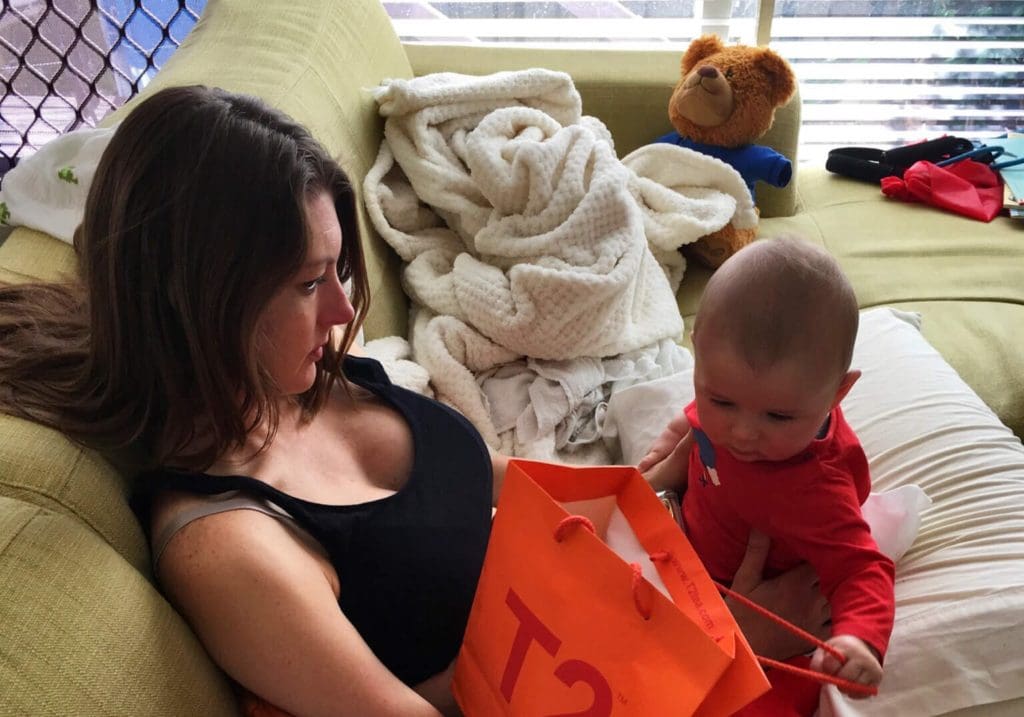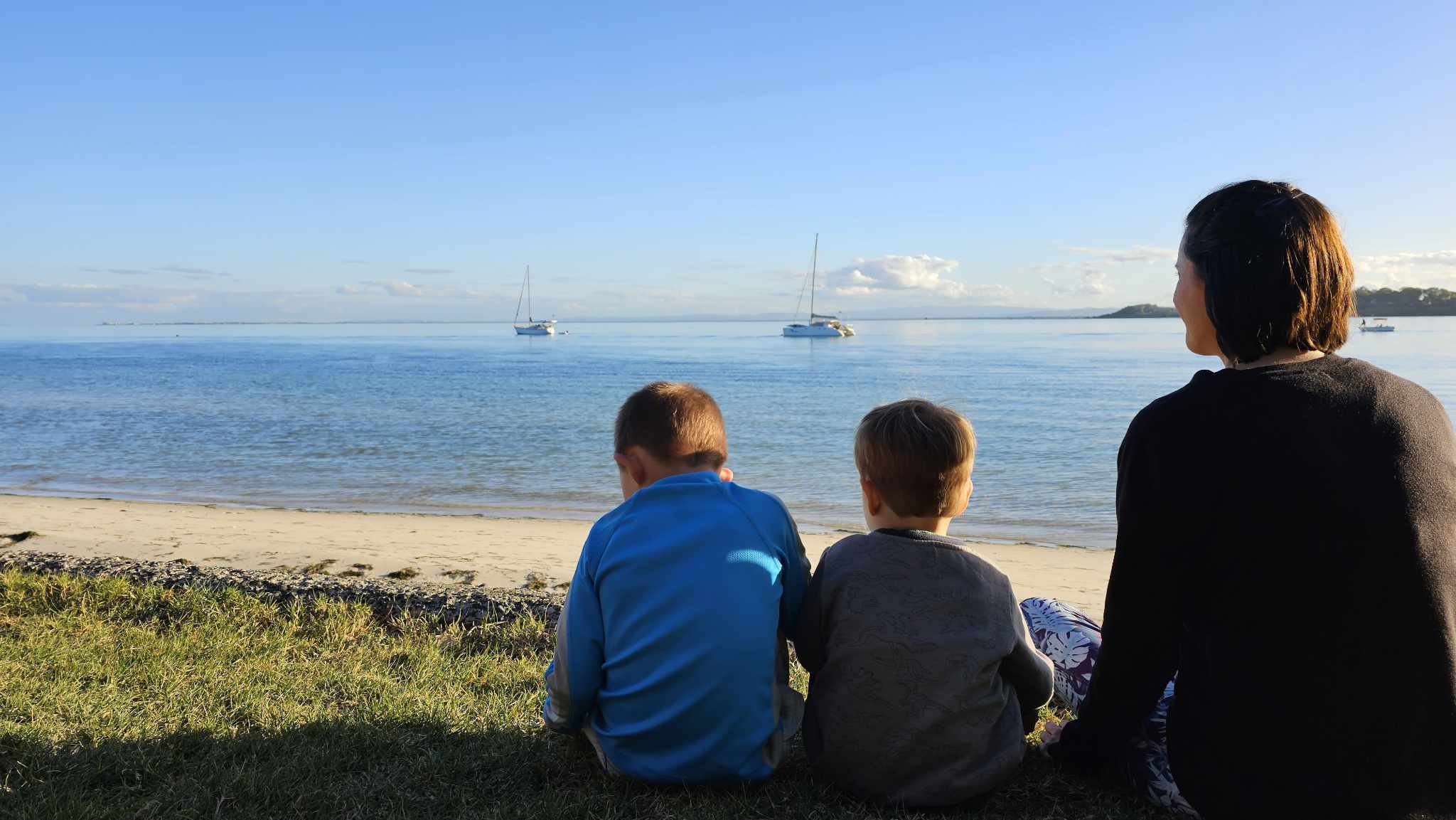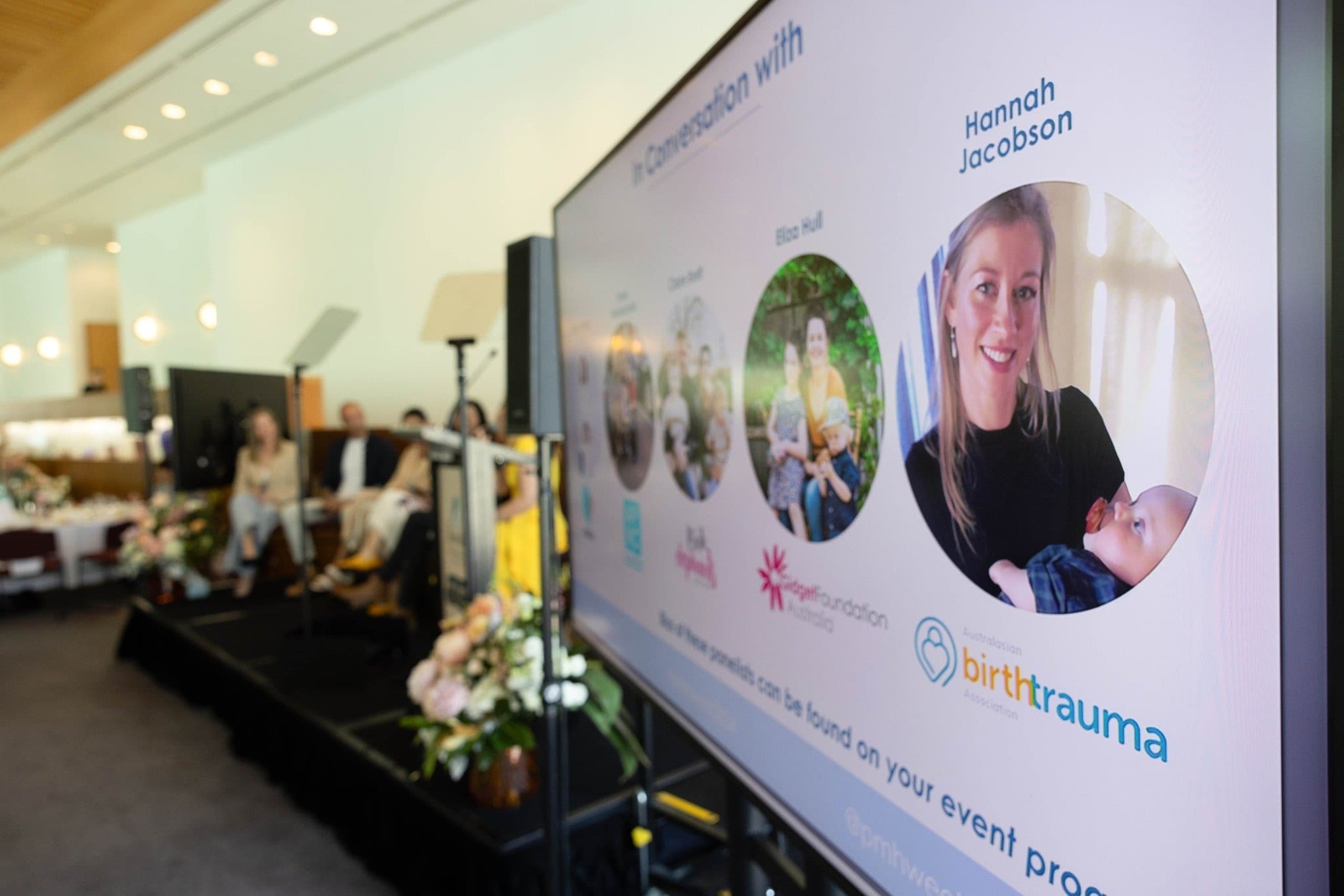Trigger Warning: This birth story contains details of induction, PND, forceps, birth after bilateral levator avulsion and pelvic organ prolapse. If you are triggered by these topics you may wish to skip this blog or read it once you have support available. If you are seeking support for your birth trauma, you may wish to contact our Peer Support Service.
Tell us a little about your first birth and prolapse diagnosis
I had a large baby (4.1 kg, 9.01P) I had to be induced as my placenta was failing and he had decreased movements. I didn’t progress in my labour in 11-12 hours so had an epidural and then dilated in 4 hours. I couldn’t push him out so they brought the doctors in. They advised an episiotomy and forceps assisted delivery but they were not sure they could get him out. I had to go into theatre in and I would need to do an emergency c section.
They were able to get him out but I had a massive episiotomy (cut twice) and had a reaction to multiple medications, which was horrible after 16 hrs labour. I was pretty much out of it, I was so scared of holding my baby as I kept falling asleep and wasn’t aware of things. I remember thinking “how am I supposed to care for this baby, I can’t do it”. It felt so horrible and no birthing classes prepared you for that.
I struggled to walk, sitting was excruciating, I didn’t have enough pain relief, my stiches got infected. The antibiotics caused thrush which was insanely uncomfortable with stitches. Once the infection was over, I still had a lot of pain and couldn’t walk far, I had been incontinent of bladder and bowel. I knew this was not right and asked my GP about it and went to a women’s health physio within 6 weeks of birth.
I had zero muscle activation of my pelvic floor, diagnosed with prolapse and had to wear supportive garments to walk. I commenced on basic exercises and TENS machine to have some muscle stimulation and then ESTIM for co-contraction, which did all work thankfully. The second complication that impacted this was developing anal fissures which went down to the nerve. The implication of this also switches off the muscles of my pelvic floor due to pain. I ended up having Botox in my muscles surrounding my anus to help stop the spasm and enable the fissures to heal. This was successful but I had pain for 6-8 months. I still have to be careful to not damage the area with hard stools.
I saw Professor Moore at the St George Pelvic Floor Clinic and the nurse there regularly, I was trialled on pessaries however none would stay in. I saw Dr Cadwell-Hall at the clinic about 9 months after birth and she did an ultrasound of pelvic floor and diagnosed bilateral levator avulsion, However, by this time i had recovered well in relation to pelvic floor muscles. I was no longer incontinent, riding a bike 10 km 2 times a week and walking without limitations. if I had been told this information at 3-4 months, I wouldn’t have thought I was ever going to get better.
The overarching problem was I had Post Natal Depression and was admitted to St John of God in Burwood for 1 months (which besides from Botox was the best decision I made)
How long was it before you felt ready to try for a second child? Was it a tough decision to try again?
I honestly thought for so long I wouldn’t even have sex ever again, let alone another baby. As with all the above, I lost a lot of sensitivity and couldn’t feel much, so it felt like such another loss and was very upsetting.
It was about 12 months when I was watching siblings play together and realised I had come a long way. I was out of pain, PND had lifted, and was actually enjoying my life. I realised having a family was more than me and that I had recovered and gotten through it. I wanted my child to have a sibling.
What care model did you choose (eg, private midwife or OB) and how did you come to that decision?
I have gone the opposite, I am going private, with an obstetrician who is also a pelvic floor/bladder specialist. I wanted someone who understood that the mother is just as important in the birth as the baby. My last experience was so overshadowed with pain both physically and mentally that I can’t remember a lot of it.
I wanted someone who I could talk openly about my experience with, have consistency of care and also had experience working with mothers who have experienced birth trauma.
How did you decide on the type of birth you would like?
Due to the damage to my pelvic floor, I consulted my women’s health physio and obstetrician. Given the facts i decided to have an elective Caesarean Section as I’m not prepared to do more damage to my pelvic floor, as it might not recover as well as it did.
It was important to me to make this decision free of anxiety and I’m grateful for the supportive team I have.
I must admit the idea of a natural birth makes me want to vomit and I was all about the natural the first time around but I was so deluded about the reality of it. People say it’s natural, what they don’t say is it is also natural to die as well.
What are 2 things you would tell to a family thinking about having another child but have experienced pelvic organ prolapse
- Have a medical professional who understands what your body has been through and feel supported that your wants and needs are being heard.
- I recovered well from my POP and various other things but that was not without a lot of help and work, (medication (antidepressants), family, counsellors, physios, psychiatrist, other mums who had experienced it and Pilates). I understand the importance of exercise and making time to help your body recover. Get help, it’s what it’s there for and don’t let yourself suffer, it can be improved.
If you would like to connect with a mum who has experienced birth after birth trauma, please contact our Peer2Peer Support service to connect with one of our Peer Mentors.





3 Responses
How horrific for you Lel. I hadn’t realised the extent. I’m so sorry but so happy that you’ve been able to come through all of that trauma and now expecting a sibling for Teddy. Xo sending love.
Hello Lel, I am truly sorry to hear your experience with the first birth but so inspiring that you gathered courage to have another baby.
My baby was born posterior using forceps. Nobody mentioned about how damaging forceps is to the female pelvic floor. I was diagnosed with bilateral levator avulsion 19 months postpartum after being diagnosed with Bladder Prolapse and rectocele @ 8 weeks postpartum. Your words resonate so much with my experience so far. We always planned to have 2 children but I really worry how difficult pregnancy could get with a damaged pelvic floor .If its not too much to ask, it might be so helpful to know how your pregnancy and childbirth went with your second one.
Hi Kirthika,
I’m so sorry I never saw your post. I am very late in replying.
My pregnancy was harder but not to do with prolapse. ( horrendous nausea, vomiting, pubic symphysis dysfunction and gestational diabetes).
I was fortunate that I didn’t go back to work between both my children, as they were only 22 months apart. I honestly don’t know how I would’ve coped.
My daughter is nearly 3 , the C-section I had with her was awesome the best decision I made. My pelvic floor is pretty good, I can’t complain it’s functional. A lot of the sensation has returned.
I started doing more weight training in the last 12 months, which has made my whole body stronger. However I spent years doing clinical Pilates to make sure I was moving correctly.